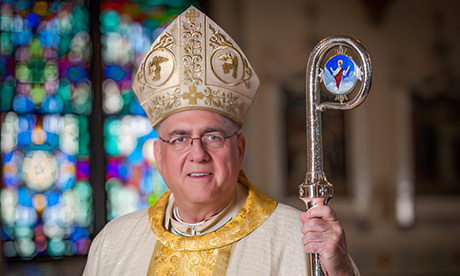I came of age in the 1960s.
It was an era of civil unrest, race riots, anti-war protests, and the sexual revolution.
One of the popular bumper stickers at the time stated: Question Everything.
These societal events coincided with the sessions of the Second Vatican Council and its early implementation.
The council brought beautiful and much-needed renewal to many aspects of Catholic life.
Sadly, there was also a serious misinterpretation of the council that fostered moral confusion. The poisonous ideas of the sexual revolution crept into the Church.
A great cultural myth was propagated that one could not be happy or fulfilled unless you were sexually active.
The rate of divorce rose dramatically within society and the Church.
Traditional sexual morals were considered antiquated.
The virtue of chastity was mocked. Influential voices within the Church sought to use the “spirit of the council” to change Catholic sexual moral teaching and practice.
With the availability and cultural embrace of oral contraceptives, Pope Paul VI warned that sexual intimacy outside of the marriage covenant would become commonplace, and the harm inflicted on children, women, men, and society would be catastrophic.
The Holy Father was prophetic.
- Out-of-wedlock births, abortion, and pornography became common.
- Sexually transmitted diseases reached epidemic levels.
- Contrary to the predictions of advocates for contraception and abortion, child abuse and child trafficking hit record levels.
- The unparalleled happiness that proponents of so-called sexual freedom promised never materialized.
- Instead, we find among young adults alarmingly high levels of anxiety, depression, and loneliness.
- Pornography and other forms of sexual addiction have become rampant and enslave many at a young age.
The unravelling of sexual morals has continued for decades.
Among the cultural fallacies is a prevalent notion that homosexual activity is healthy and normal, just another lifestyle choice.
In recent years, our cultural confusion has now spawned gender ideology, asserting that human beings can deny their biological gender.
Tragically, many young people have been pressured to undergo gender-transitioning hormonal regimens and to mutilate their bodies by “gender reassignment” surgeries.
Gratefully, St. John Paul II, with his landmark teaching on the theology of the body, gave us new language to articulate the beauty of human sexuality and to help restore moral sanity.
Pope Benedict also provided clear teaching in these important areas.
Pope Francis has spoken plainly and strongly about the evil of abortion and the danger of gender theory.
I have been saddened that in the preparation for the Synod on Synodality, there has been a renewed effort by some in Church leadership to resuscitate moral confusion on human sexuality.
The German Synodal Way is a striking example.
The leadership of the German bishops’ conference has rejected correction from Pope Francis.
Most troubling has been statements by Cardinal Jean-Claude Hollerich of Luxembourg, who asserts that Church teaching related to homosexuality is false because he believes the sociological-scientific foundation of this teaching is no longer correct.
Cardinal Hollerich’s statements are particularly concerning because of the leadership role that he has been assigned as relator general for the Synod on Synodality.
Most recently, Cardinal Robert McElroy’s article in the Jesuit journal America Magazine has charged that the Catholic Church “contains structures and cultures of exclusion that alienate all too many from the Church or make their journey in the Catholic faith tremendously burdensome.”
Cardinal McElroy champions what he terms radical inclusion that embraces everyone into full communion with the Church on their terms.
The mandate of Jesus given to the apostles to make disciples of all nations is construed to mean to enlarge the tent of the Church by accommodating behaviours contrary to Our Lord’s own teaching.
Cardinal McElroy appears to believe that the Church for 2,000 years has exaggerated the importance of her sexual moral teaching and that radical inclusion supersedes doctrinal fidelity, especially in the area of the Church’s moral teaching regarding human sexuality.
In my opinion, this is a most serious and dangerous error.
Our understanding of sexual morals significantly impacts marriage and family life.
The importance of marriage and family to society, culture, the nation, and the Church cannot be overestimated.
Proponents of radical inclusion cite Our Lord’s association with sinners.
In the face of harsh criticism of religious leaders, it is true that Jesus manifested great concern, compassion, and mercy to sinners. Continue reading
- Joseph F. Naumann is Archbishop of Kansas City, Kansas
- He is writing in response to recent statements by Cardinal Robert McElroy of San Diego
